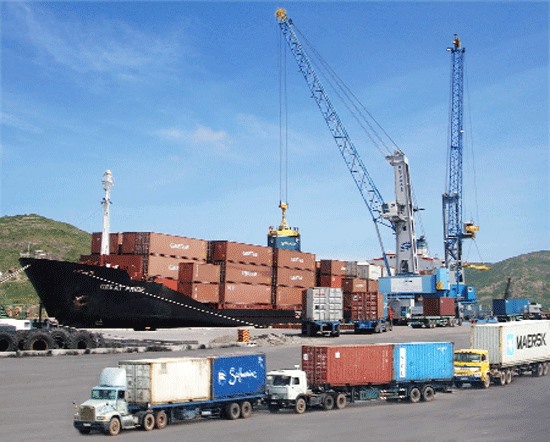 Society
Society

Newly-constructed inland container depots (ICD) must have an area of minimum five hectares and ensure environmental protection and fire, explosion prevention requirements.
 |
| Newly-constructed inland container depots (ICD) must have a minimum area of five hectares and be up to environmental protection and fire and explosion prevention standards.-Photo dantri.com.vn |
HÀ NỘI - Newly-constructed inland container depots (ICD) must have a minimum area of five hectares and be up to environmental protection and fire and explosion prevention standards.
The requirement has been clarified in newly issued Government decree 38/2017/ND-CP on the management of ICDs in Việt Nam.
According to the decree, ICDs are used to wrap and unload goods transported via containers and move them to sea ports and other locations.
ICDs are also used to complete customs procedures on imports and exports, temporarily store goods and repair containers.
The decrees clarifies that ICDs must be formed following ICD development planning that has been approved and attached with primary transport corridors to connect sea ports.
ICDs must have at least two transport methods and have enough land funds for offices and long-term development.
The Government has assigned the Transport Ministrty to establish, publish and update a list of ICDs annually on the portals of the ministry and Marine Department.
The ministry is also in charge of State management of ICDs, directing inter-sector activities and implementing regulations.
According to the decree, Vietnamese and foreign organisations and individuals investing in Vietnamese ICDs must follow decree regulations.
Investments in ICD construction must be in keeping with ICD development planning and related planning, it said.
The decree also requires ICD investors to submit to the ministry’s Marine Department a copy of construction investment decision, its design, design approval decision and the project’s environmental assessment.
Figures from the ministry show that there are 24 ICDs in Việt Nam. There are ten ICDs in the north, which are connected with Hải Phòng. However, most have no connection with other modes of transport such as railways and waterways.
According to Nguyễn Xuân Sang, director of the Ministry of Transport’s Marine Department, in the south, ten ICDs are connected with the sea ports of Vũng Tàu and HCM City, seven of which are linked with domestic waterways.
Many ICDs in the north are not connected with the sea, rivers or railroads. Thus, these ICDs are restricted to supplying road transport services and storage.
In the south, ICDs operate more effectively. Up to 80 per cent of goods nationwide are transported via these depots. However, some ICDs are located inside the city, causing traffic jams. It is necessary to relocate these depots.
Most of the ICDs in the country have poorly constructed warehouses, which results in inefficiency, Sang said.
Decree 38/2017/ND-CP serves as a foundation for the ICD system across the country to develop according to planning.
According to the Government’s ICD planning until 2020 with a vision to 2030, the ICD system is expected to reach the capacity of 6 million TEU (twenty-foot equivalent units, a standard unit for describing a ship’s cargo capacity) each year. By 2030, the figure is hoped to hit 14.2 million TEU. - VNS




